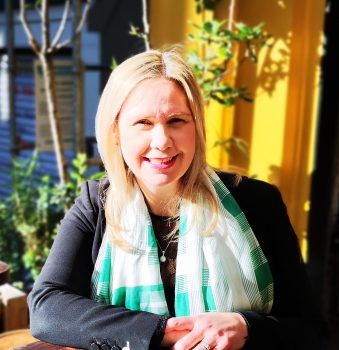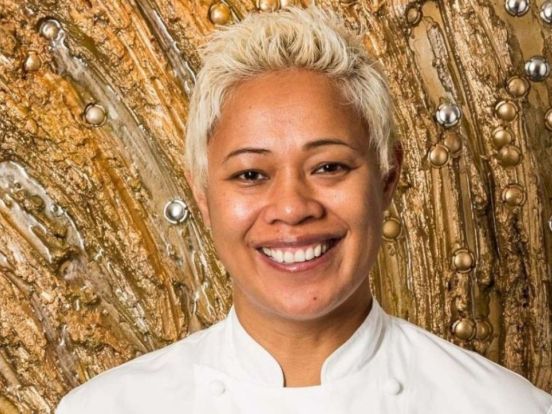Hospitality NZ is hopeful, but doubtful, that the Government’s financial package will be enough to stave off closure for most venues and accommodation providers however, the criteria around the new financial support payment will lock out too many businesses from being eligible says the Restaurant Association.
“Unfortunately, the specific criteria set will make too many businesses ineligible,” says Marisa Bidois, CEO of the Restaurant Association.

Under the new financial support payment businesses able to show a 40 per cent decrease in revenue over 7 days within the six weeks prior to the shift to phase 2, compared to 7 days after that date, will be able to apply for $4000 plus four hundred dollars per employee, capped at $24,000 or 50 employees.
“January is a very tricky time for hospitality. While businesses in key holiday hotspots traditionally do well during this period, others in the main centres are often very slow during this period as people left the cities for the summer break.
“What we would like to see is the comparison period extended by a further four weeks, giving those businesses the ability to be able to compare to a period in December or preferably a year on year comparison.
“Ever since August of 2021, revenues have been down on previous years so the ability to be able to compare to a period when we were not impacted by alert level operational restrictions, would be a more reliable reflection of the impact to business. Or for new businesses, the ability to compare to the December 2021 period.
“Omicron is having a sizeable effect on our industry right now which sadly we don’t see changing imminently. CBD’s are empty and many people are still hesitant to spend time in public spaces and this is going to continue to hit hospitality hard, so we really do need to ensure that as many of those struggling businesses as possible are eligible for this payment.”
There are 21,000 hospitality venues in New Zealand, most down more than 40% on revenue, and half told a survey last week that they won’t survive longer than three months.
Hospitality NZ estimates that the average combined pay out for the six weeks will be about $21,000 – equal only to an average premises’ lease for the period and nothing else.
Hospitality NZ Chief Executive Julie White says that compared with the scale of the losses, the amount of money available is concerning. “Right now, I have to say it looks like it will not be enough. Many will now close, or at best hibernate. Either way, it means job losses.

“The sector has compounded losses for two years and patronage been very low since the last lockdown. Many have exhausted all sources of private funds. Today they have certainty about the Government’s contribution. They can make their calculations and decide whether to continue,” says Julie White.
She welcomes the Government’s acknowledgement that the financial cost of the health response has weighed heavily on the hospitality sector.
“The package reflects a deep downturn under the Red settings, which have discouraged New Zealanders from travelling and going out.”
She warns that eligibility criteria might hide significant issues: the package requires a 40% revenue drop in Phase 2 compared to any week since 1 January, but revenue for many businesses was already extraordinarily low during January.
“Some businesses never experienced a significant upturn in revenue after lockdown last year. Northland was in Red for a long time, and never got a chance to recover before the whole nation went into the Red setting. The public reacted very quickly to Omicron.”
The Government has said it is continuously reviewing the economic impact of the health response, so Hospitality NZ says it plans to advocate for a second instalment next month.
Tourism survival
Meanwhile Tourism Industry Aotearoa says tourism operators acknowledge the Government has recognised the challenges they are facing but the industry’s priority is for New Zealand borders to be reopened without self-isolation requirements.
“The announcement of the new targeted COVID Support Payment and changes to the Small Business Cashflow Loans Scheme will help smaller tourism businesses to survive the next six weeks.
“Along with the Short Term Absence Payment and the Leave Support Scheme, the new support payment will provide them with some oxygen to help them survive over the next six weeks or so. But it will have little benefit for larger businesses with high overheads and more than 50 employees who are also facing a wholesale loss of customers while New Zealand remains at the Red setting,” TIA Communications Manager Ann-Marie Johnson says.
TIA is looking forward to getting more detail on the support that will be available to seasonal businesses.
TIA has also asked Tourism Minister Stuart Nash for an immediate package of support including relief from government fees and levies such as Department of Conservation concession fees to reduce costs.
“The tourism industry is not seeking long-term government support. The need for support will likely disappear when we can once again welcome international visitors with no self-isolation requirement. We are pressing Government to act with urgency on the removal of self-isolation as soon as possible.”
With Australia reopening its borders to international visitors today, New Zealand’s tourism industry is being left behind, delaying its recovery even longer, she says.
TIA has been working with a network of tourism sector associations to survey industry operators. The survey has found that respondents expect their revenues will be down on average by 59% compared to the same period the previous year. This in turn was half that of pre-COVID levels due to the loss of revenues from international visitors.
Sixty-six percent of respondents classified the current operating environment as extremely difficult.
The survey results are being analysed and more detail will be available shortly.
“Almost every day we are hearing of more tourism business closures. Operators who have survived for the last two years are now facing their greatest challenges at a time when they expected to be looking forward to recovery,” Ms Johnson says.
“Further loss of New Zealand’s tourism businesses runs the very real risk that the DNA of the tourism industry will be destroyed, severely limiting the industry’s ability to build back better with the high quality, regenerative tourism economy that we are all aspiring to,” Ms Johnson said.
Covid Support Payment Details
Finance Minister, Grant Robertson announced the new Covid Support Payment of $4000 plus $400 per full-time employee – capped at 50 FTE positions, or $24,000 – would be made available to businesses.
To be eligible, they would have to show a 40 percent drop in revenue over seven consecutive days during the six weeks prior to 15 February, when the government shifted to phase two, Robertson said.
“We have set a higher threshold in terms of revenue loss than previous support in order to target those most affected,” he said.
It would be paid on a fortnightly basis for six weeks, with the option to extend the duration if necessary.
“This reflects the international experience that the peak of the Omicron outbreak should pass after about six weeks. We will continue to closely monitor the situation,” Robertson said.
He said the government had considered sector-specific packages, but “the need for cashflow to be provided quickly meant that was not a feasible option to reach the most affected”.
Small Business Cashflow Loans Scheme to be partially interest free
The Small Business Cashflow Loans Scheme is also being extended, allowing firms that had already accessed it an extra $10,000.
It would have a new repayment period of five years, with the first two years being interest free.
He said the interest already accrued from borrowers accessing the scheme would also be cancelled for the first two years of the loan.
“This change will mean interest will only start accruing at the beginning of year three,” he said.
Flexibility on tax repayment timings
Revenue Minister David Parker also said Inland Revenue’s ability to allow businesses to be flexible in their tax payment dates and terms was being extended.
He said any business struggling to pay tax because of Covid-19 should access their myIR account to see if they could delay starting payments, or if any part of the tax could be written off.
The department could help with GST as well as provisional tax due, he said.








